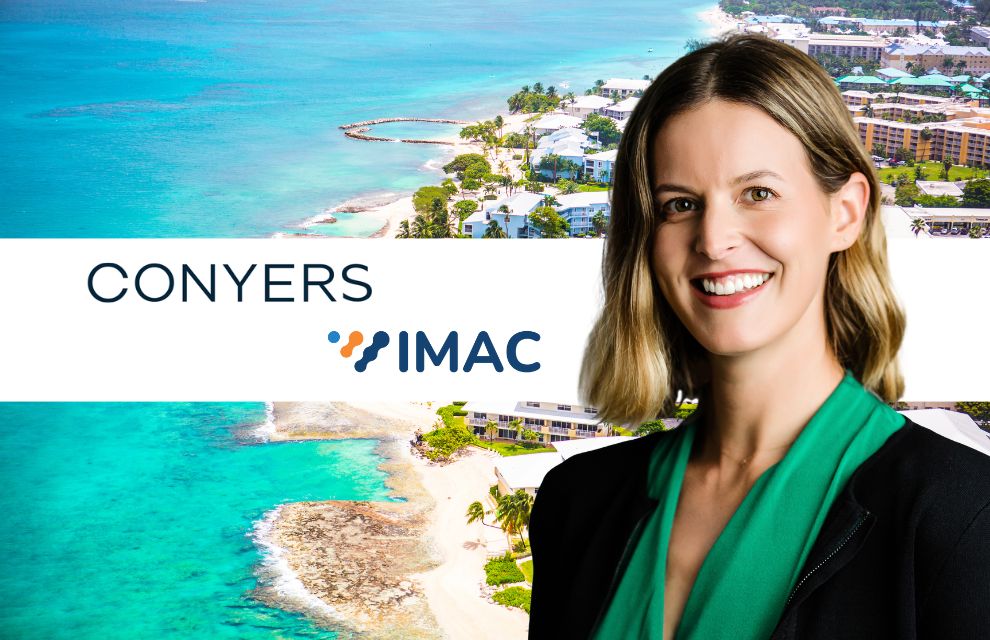The Cayman Islands is emerging as a leading hub for insurance-linked securities and collateralised reinsurance, attracting diverse industry players with innovative licensing and rapid regulatory processes
The Cayman Islands is renowned for being an innovative and business-friendly jurisdiction and welcomes the challenge of competing in the ever-evolving insurance-linked securities (ILS) industry, in which it remains a significant player. The Cayman Islands Monetary Authority (CIMA) has issued around 70 per cent of recent insurance licences to commercial or affiliate reinsurers, attracting a mix of private equity groups, traditional reinsurers, and insurtech startups, alongside the captive insurers that founded the industry. These developments underline the strategic benefits of the jurisdiction, which are well known to sponsors, and place the Cayman Islands in a strong position to facilitate a broad scope of possible transactions that comprise the ILS industry.
At the first dedicated reinsurance conference in the Cayman Islands held in April 2024, Deputy Premier André Ebanks highlighted the synergy between the reinsurance and investment fund sectors, describing it as a ‘perfect marriage’. He emphasised the Cayman Islands' suitability for hybrid products like catastrophe bonds, as well as its readiness to capitalise on the expanding ILS and collateralised reinsurance markets. This spirit of innovation is expected to continue driving the Cayman Islands reputation as a leading hub for ILS and collateralised reinsurance.
Flexible licences and proportionate regulation
The Cayman Islands' history with the ILS market began in the mid-1990s, marking its early beginnings with the issuance of the first catastrophe bonds. With a solid reputation as a leading international finance centre, the Cayman Islands was a natural fit for these pioneering financial products at a time when other financial hubs were unsure of ILS place in the overall insurance and capital markets industries. While Bermuda has emerged as the frontrunner in the catastrophe bonds sector, the Cayman Islands continue to innovate within the broader ILS market and is actively expanding its scope beyond traditional property catastrophe bonds to include casualty ILS, which presents a different risk profile and unique opportunities. This strategic expansion showcases the Cayman Islands' commitment to evolving its financial services to meet diverse market needs.
Over a decade ago, the Cayman Government developed the Class C as a special category of insurance licence, adapted for entities providing reinsurance through the issuance of ILS such as catastrophe bonds, sidecars, collateralised reinsurance, life insurance securitisation, longevity, or similar instruments. The benefits of the Class C licence for fully collateralised and limited recourse transactions include peppercorn capitalisation, audit exemptions, and comparatively light regulatory oversight. More recently, CIMA announced a further streamlining of the licensing process for catastrophe bond transactions, enabling applications to be approved in five business days, a highly attractive proposition for sponsors looking for regulatory certainty to facilitate these deals in a speedy fashion.
The flexibility of the Class B(iii) licence also attracts many sponsors, who choose to establish their collateralised reinsurer as a segregated portfolio company in this licence class. This structure allows the company to write fully collateralised, limited recourse transactions in dedicated cells, while also maintaining the flexibility to write other third-party business.
One such recent entrant to the Cayman market is Ledger Re SPC, a reinsurer established by Ledger Investing, a technology company disrupting the insurance industry's financing. Led by Samir Shah, former chief risk officer and head of insurance capital markets at AIG, Ledger has pioneered the expansion of the ILS market to non-catastrophe insurance risks, with a focus on private passenger auto, commercial auto, workers' compensation, and general liability.
Prior to establishing in Cayman, Ledger’s transactions were largely in the form of quota share reinsurance from US fronting insurance carriers to Bermuda-based segregated account companies.
However, Ledger identified the key reasons for the Cayman Islands to be the ideal location to start the casualty ILS market: its unique regulatory framework, the chance to grow the market through capital management, and the large number of institutional investors that already live there.
Before moving to the Cayman Islands, Ledger primarily conducted quota share reinsurance through US fronting carriers to Bermuda-based segregated account companies. However, recognising the Cayman Islands' specialised regulatory framework, opportunities for market growth via capital management, and the strong presence of institutional investors, Ledger chose the jurisdiction as the ideal base for expanding into the casualty ILS market.
When asked about the future of the ILS market, Shah says: "We believe there is a stronger narrative for insurance securitisation than as an extension of the reinsurance market: positioning it as an extension of the multi-trillion dollar securitisation market used by banks for capital management.
“By reframing insurance securitisation as a capital management tool rather than solely a reinsurance solution, the market can realise its potential to grow into a trillion-dollar industry, offering new opportunities for insurers to enhance their capital strategies."
Regarding Cayman’s unique position, he notes: “The long-term nature and unique economics of casualty ILS require specialised infrastructure to underwrite risk, monitor performance, and manage capital effectively.
“CIMA’s risk-based regulatory approach is particularly well-suited to optimising risk and capital management specifically for casualty ILS, and its licensing framework for segregated portfolio companies and portfolio insurance companies is well suited for growth. Finally, Ledger aims to attract many institutional investors to the casualty ILS market, many of whom, while new to ILS investments, are already well established in the Cayman Islands."
Innovation is key
As the ILS market evolves, the Cayman Islands will continue to respond by developing innovative solutions to new transaction structures. The introduction of the portfolio insurance company product in 2015 and the provision of a legislative footing for capital redemption contracts in 2022 are perfect examples of such innovation.
CIMA continues to offer an efficient, collaborative, and commercial licensing process that provides applicants with a speed to market envied by other jurisdictions. CIMA's insurance division has established specialised teams to handle the growing variety and complexity of insurance transactions entering the market.
The Cayman Islands government has publicly committed to developing legislative changes that will further enhance the insurance regulatory regime. Industry groups are actively participating in initiatives to address and respond effectively to new market requirements.
Kieran Mehigan, chair of the Insurance Managers Association of Cayman, anticipates that with the thriving international commercial reinsurance market, this legacy of innovation, and a commitment to collaboration, the Cayman Islands is poised to solidify its position as a leader in the ILS market.





